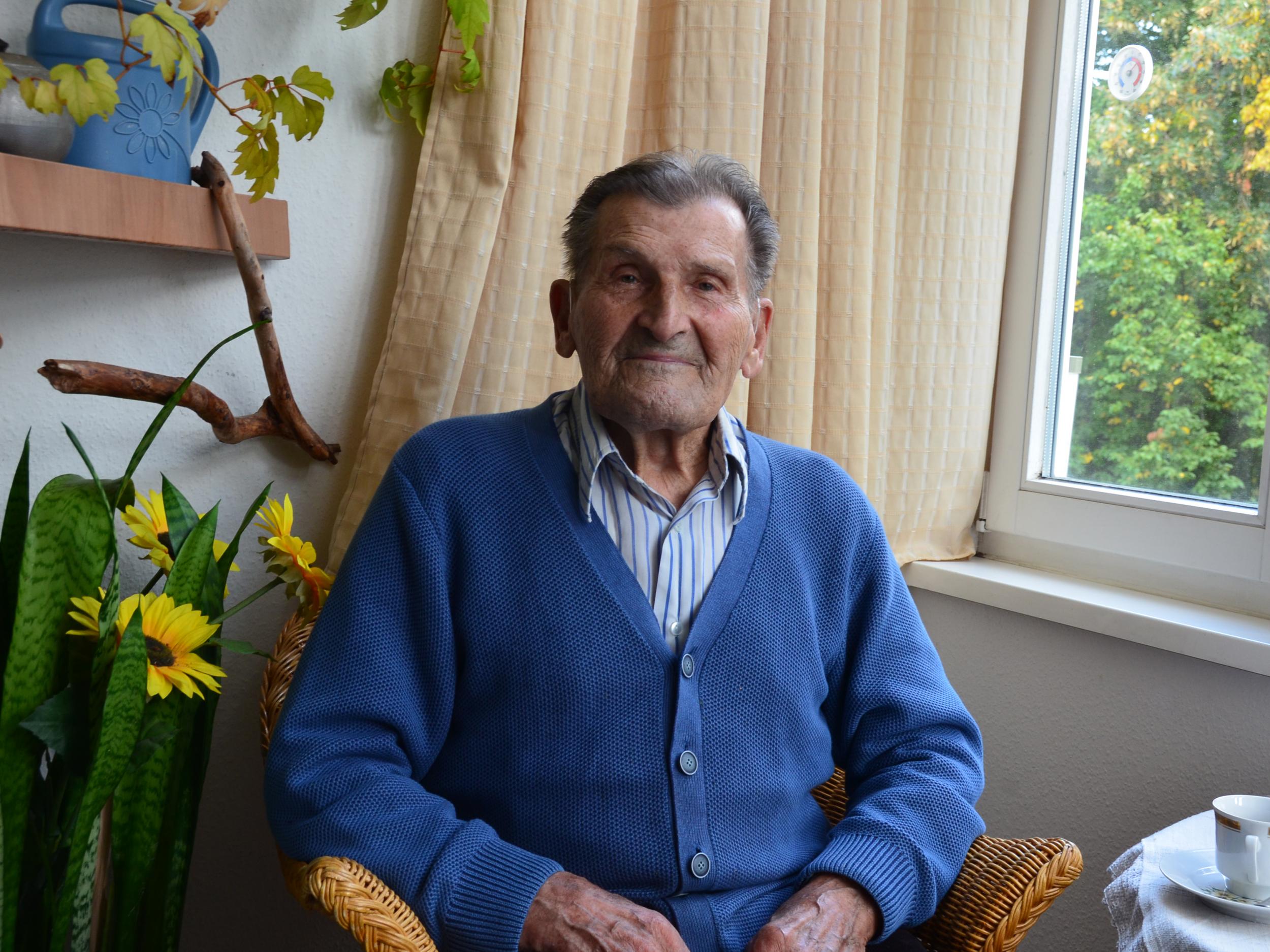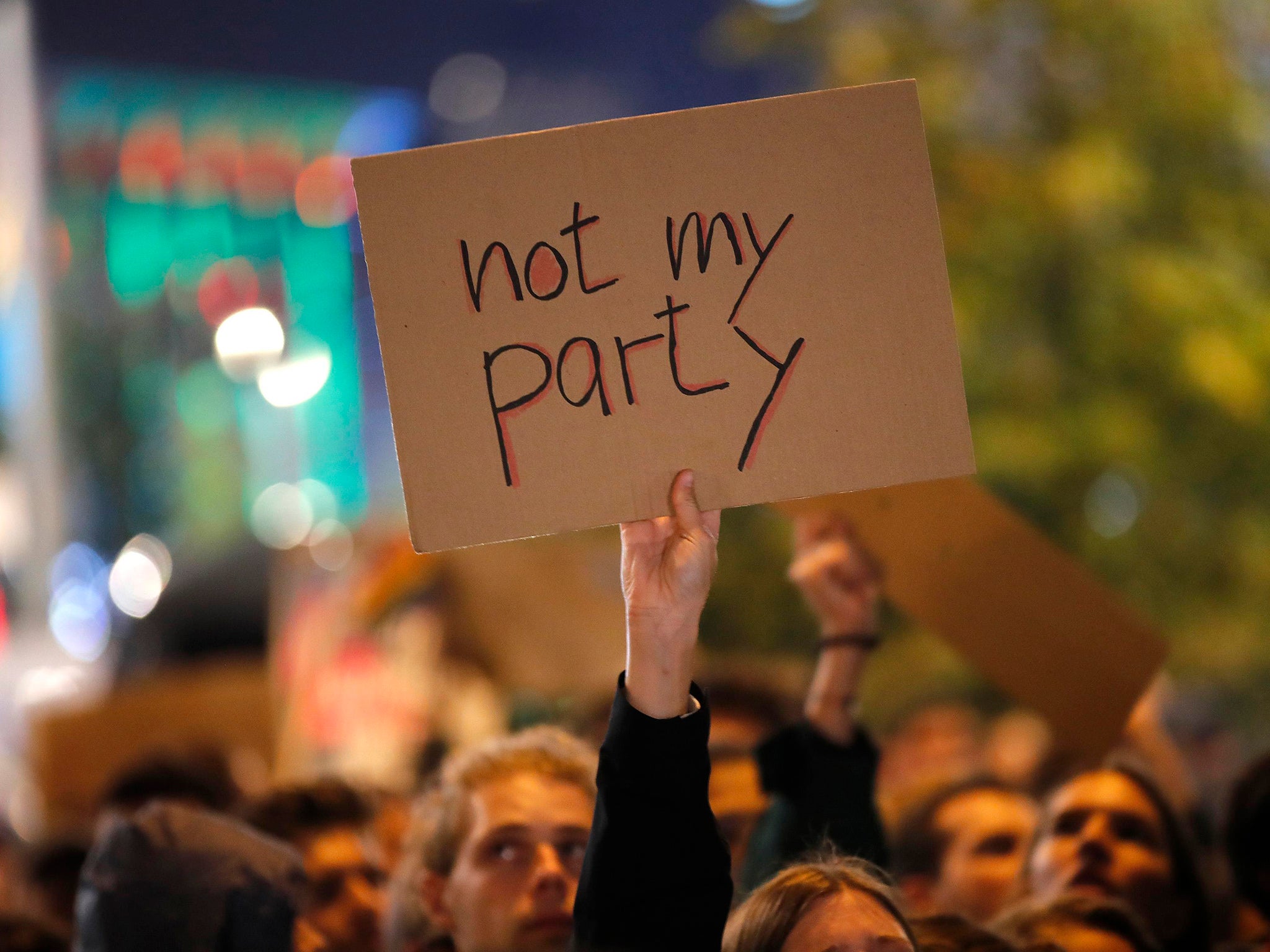‘Have we not learned from the war?’ Re-emergence of Germany’s far-right brings back memories of darker times
The nationalist Alternative fur Deutschland (AfD) party won 93 seats in parliament, the first time a far-right party has entered the Bundestag in almost six decades

In a modest apartment in a district of former East Berlin, Hans Blank, 95, a veteran socialist and political activist, sighs at the state of politics in Germany.
A member of the left wing populist party Die Linke (The Left), Mr Blank has lived in the now gentrified neighbourhood of Prenzlauer Berg for his entire life, witnessing the key events of the last century and how they have transformed Germany into a modern state.
The recent rise of the right wing nationalist and euroseceptic party Alternative fur Deutschland (AfD), which seized on the country’s anti-immigration sentiment and the shift of the political landscape to the centre ground, has brought back memories of darker times in Mr Blank’s life.
The results of Sunday’s election sent shockwaves through the country as the AfD won 12.6 per cent of the vote and a total of 93 seats in parliament. It is the first time a far-right party has entered the Bundestag in almost six decades.
Mr Blank does not hide his anxiety at the success of the AfD. The oldest member of Die Linke in Prenzlauer Berg, Mr Blank has, like his father before him, made political engagement his way of life.
For him, the AfD’s message of “them versus us” when referring to refugees and migrants is a slippery slope.
“We can’t directly compare what is happening now with what happened in the last century but the rise of the AfD is reminiscent of Nazi times, particularly in their political message. There is nothing more serious than this for our people,” he told The Independent.
“The AfD suggests migrants are not good people and that they must leave, they see Muslims as different from them, they say they are not Germans and cannot become German. This is the same thought process the Nazis had with the Jews, that they could not be Germans,” he added.
Siding with optimism, Mr Blank said he hoped the German people will resist the AfD’s political arguments and stay away from this renewed nationalism. “Have we not learnt the lessons from the war?” he asked.
“It is partly the fault of my generation, we should have done more to pass on our experience to younger generations.
“Some people and politicians argue all this is in the past and we should put it behind us to focus on the present. But that’s a mistake. We can’t close our eyes on the past because otherwise we won’t know how to deal with the present and the future.”
Born in 1922 in Berlin into a working-class family, Mr Blank’s father Wilhelm Blank was a member of the communist KPD party in Germany and became a leading resistance figure against Hitler’s regime after he was elected into power in 1933.

He helped people persecuted by the regime into hiding and sent letters and notes encouraging others to join the resistance. He was eventually denounced, allegedly by a member of his left wing network and sent to Sachsenhausen, a concentration camp for political prisoners in the northeast of Berlin. He was later transferred to Mauthausen in Austria where he died four weeks before US troop liberated the camp.
In 1941, Mr Blank was forced to join the German army and fight for the Nazi cause after his father had attracted dangerous attention on his communist family and friends.
“My father had told me what a war was like and for ordinary people there is nothing more wicked than a war,” he said.
Mr Blank fought under the command of notorious German war general Erwin Rommel in North Africa, deliberately avoiding fighting on Europe’s front line.
But in 1943, he was captured by the British in Libya. For the next four years he worked in labour camps as a war prisoner, first in Morocco before being sent to Louisiana in the US to pick cotton and harvest sugar cane. He was eventually sent to France where he worked in a stone pit in the Pyrenees.
In 1947, Mr Blank was one of the first war prisoners in France to be sent back to Germany after his mother sent a letter to the French authorities explaining that his father had been a communist rebel against the Nazis and that the family was “on the good side” in Mr Blank’s words.
Now a staunch pacifist, he remembers this part of his life with mixed emotions. “Imprisonment was a terrible thing but at least I always had something to eat,” he said.
Upon his return to Berlin, Mr Blank joined the new police force but his aversion to uniforms made him seek other opportunities and he became an engineer for the construction industry.
An active member of the East German Communist Party, the SED, he continued to participate in organising the new party but living standards were slow to improve.
“Life was hard”, said Mr Blank, remembering the chocolate and cars enjoyed by Germans living on the western side and which drew millions of East Germans to cross the border in the hope of a better life.
“In my construction office, out of 40 engineers only three were left before the wall was built, all the others had left,” he said.
When the Berlin wall was completed, Mr Blank was working in North Korea, helping to build a printing factory promised by East Germany.
Cherishing the prospect of creating a socialist state in the East, Mr Blank said he believed at the time the wall was a necessary evil that would “enable the economy to grow and quickly prosper until we wouldn’t need it anymore”.
But the socialist ideal was dashed and the economy failed to catch up with the capitalist-driven West. Mr Blank’s family, which like many others had been torn apart between East and West, started to feel the growing gap between both sides as living conditions became harsher in the East.
“I just couldn’t see the end of it,” he said, adding “I also felt sad because we didn’t manage to make socialism work.”
And yet, over the years Mr Blank has continued to hold on to his belief in a socialist ideal. He said some have described his affiliation with Die Linke, which received 9 per cent of the votes in Sunday’s election, as “utopian” but added: “This is the only party which can achieve peace”.
For now, Mr Blank hopes he can pass on the principles that have ruled his life to his two granddaughters, including the memory of his own father who died resisting the Nazi regime.
A few hundred metres from his home, a memorial stone remembers his father as a political victim of Hitler’s so-called national socialism. In recent years, the stone has regularly been vandalised and Mr Blank has had to clean the memorial himself on several occasions.
“This continues to be my battle,” he said.
Join our commenting forum
Join thought-provoking conversations, follow other Independent readers and see their replies
0Comments